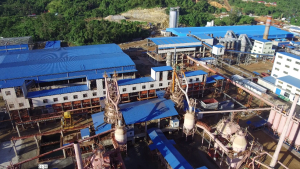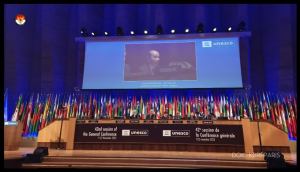Raja Ampat nickel mine closures expose ESG, market volatility risks: EBC Financial
Indonesia’s decision to revoke nickel mining permits in the ecologically sensitive Raja Ampat region has drawn praise from environmentalists, but sparked fresh concerns over legal uncertainty, investor confidence, and global supply chain volatility in the nickel market, according to a new report from EBC Financial Group.
While Raja Ampat itself is not a major nickel production hub, the government’s move to shut down four mining operations in the UNESCO-protected marine area has sent signals rippling across commodity markets. Traders and investors are now bracing for possible disruptions to supply expectations and heightened environmental, social, and governance (ESG) scrutiny in the nickel sector.
“The Raja Ampat case highlights the growing intersection of ESG factors, local community interests, and global market dynamics,” David Barrett, CEO of EBC Financial Group (UK) Ltd, said as quoted in a statement on Thursday, July 3, 2025.
“For traders and investors, this is a wake-up call that commodity markets − especially in critical sectors like nickel − can be highly sensitive to environmental policy pressures.” he added.
The closures are part of Indonesia’s broader efforts to strengthen regulatory and environmental governance in mining. However, the decision has triggered a wave of legal challenges from affected companies seeking to reinstate their permits, adding to the legal and regulatory risks facing the industry.
Strategic commodity under pressure
Indonesia dominates the global nickel market, supplying more than half of the world’s refined nickel, an essential metal for electric vehicle (EV) batteries and stainless steel. In 2024, the country produced an estimated 2.2 million metric tons of refined nickel. Any changes in Indonesian production have immediate implications for global supply chains and industrial input costs.
“Traders need to stay alert not only to commodity volatility, but also to potential impacts on the rupiah, equities, and the country’s broader ESG risk profile,” Barrett said. He warned that ongoing legal battles and regulatory shifts could introduce “swift and unpredictable” price movements.
Nickel contributed approximately 6.8 percent of Indonesia’s total exports in 2024, playing a significant role in maintaining the country’s trade surplus. A drop in output could cut export earnings, pressure the rupiah, and widen Indonesia’s current account deficit — introducing risks for both short-term currency movements and longer-term monetary policy assumptions.
Market rebound and supply-side volatility
According to the Investing News Network, nickel prices plunged to five-year lows in Q1 2025 − briefly dipping below US$15,000/metric ton − due to oversupply and concerns over U.S. tariffs. However, the market has since rebounded to around US$16,700/ton on expectations of tighter supply and more disciplined production.
Still, EBC warns that this rebound masks deeper instability. The sudden revocation of mining permits in Raja Ampat injects new uncertainty into supply forecasts, raising the possibility of another price surge if market participants begin to aggressively reprice risks.
“With ESG-focused funds increasing scrutiny of nickel sourcing, traders must track both market fundamentals and evolving political signals,” Barrett noted.
Industrial implications
While battery production garners the spotlight in nickel discussions, over two-thirds of global nickel demand is still tied to stainless steel manufacturing. Nickel’s role in stabilizing stainless steel alloys makes it indispensable to industries such as automotive, aerospace, food processing, and energy infrastructure.
Any sustained disruption in Indonesian nickel output could reduce availability, increase input costs, and contribute to inflation across these industrial sectors.
EBC concludes that Indonesia’s actions in Raja Ampat serve as a critical test case for how environmental governance intersects with market dynamics. As the world’s most influential nickel supplier, Indonesia’s domestic policy decisions now carry global consequences − not only for prices but for investor strategies, ESG compliance, and long-term industrial planning.
For ongoing updates and insights into commodity markets, EBC advises stakeholders to monitor both domestic developments in Indonesia and global demand shifts, particularly as ESG mandates and geopolitical uncertainties continue to reshape the global trading landscape.
Already have an account? Sign In
-
Start reading
Freemium
-
Monthly Subscription
20% OFF$29.75
$37.19/MonthCancel anytime
This offer is open to all new subscribers!
Subscribe now -
Yearly Subscription
33% OFF$228.13
$340.5/YearCancel anytime
This offer is open to all new subscribers!
Subscribe now







